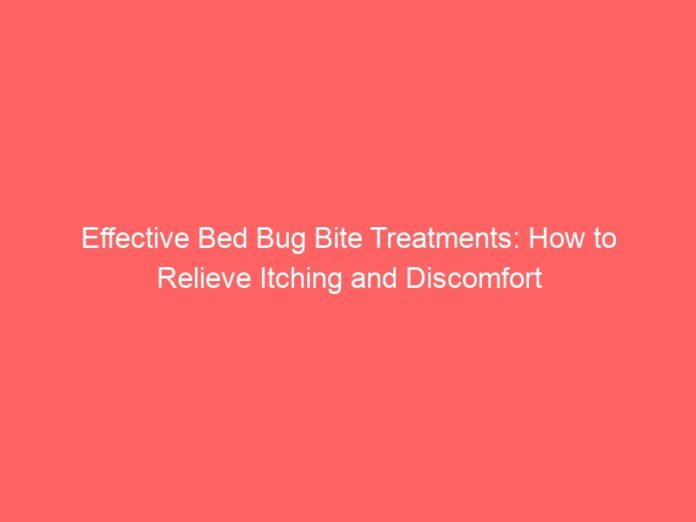
Effective Bed Bug Bite Treatments: How to Relieve Itching and Discomfort
Introduction
Bed bugs are small, brownish insects that feed on human blood. These tiny pests can invade your home, infesting your furniture, mattresses, and even your clothing. Besides being a nuisance, bed bug bites can cause itching, discomfort, and sometimes allergic reactions. In this article, we’ll discuss some effective treatments to relieve the unpleasant symptoms associated with bed bug bites.
1. Clean the Affected Area
As soon as you notice bed bug bites, wash the affected area with mild soap and water. Gently pat it dry with a clean towel. This helps to remove any dirt, bacteria, or bed bug saliva present on the skin, reducing the risk of infection.
2. Apply Cold Compress
Using a cold compress can effectively reduce itching and swelling caused by bed bug bites. Wrap some ice cubes in a thin cloth or towel and gently press it against the affected area for about 10-15 minutes. The cold temperature helps numb the skin, providing instant relief.
3. Over-the-Counter Anti-Itch Creams
Over-the-counter (OTC) anti-itch creams or ointments can be useful in reducing itching and inflammation caused by bed bug bites. Look for products containing ingredients like hydrocortisone or calamine lotion, as they have soothing properties. Apply a thin layer of the cream directly to the affected area, following the instructions on the product label.
4. Natural Home Remedies
Several natural remedies can help alleviate the discomfort caused by bed bug bites. Aloe vera gel, with its anti-inflammatory and soothing properties, can be applied to the bites to reduce itchiness. Tea tree oil, diluted with a carrier oil, can also be used as a topical treatment due to its antimicrobial and anti-inflammatory benefits. Alternatively, placing a slice of fresh cucumber on the bites can provide a cooling effect, relieving itchiness.
5. Oral Antihistamines
If the itching is persistent and affects your ability to sleep or function properly, oral antihistamines can be a valuable option. These medications work by blocking the release of histamine, the compound responsible for itching and inflammation. Consult with a healthcare professional to determine the appropriate dosage and type of antihistamine for your situation.
6. Avoid Scratching
While scratching may provide momentary relief, it can worsen the itching and increase the risk of infection. Bed bug bites can be extremely itchy, but try to resist the urge to scratch them. You can cover the bites with a bandage or use mittens or gloves while sleeping to prevent unconscious scratching. Keeping the area clean and moisturized can also reduce the temptation to scratch.
7. Seek Professional Pest Control
To fully eradicate bed bugs and prevent further bites, it’s crucial to address the underlying infestation. Engage the services of a professional pest control company specializing in bed bug treatments. These experts will assess the severity of the infestation and use appropriate methods to eliminate the pests, ensuring a bed bug-free home.
Conclusion
Bed bug bites can cause significant discomfort and irritation. But with the right treatments, you can find relief from itching and reduce the risk of infection. From cleaning the affected area to using OTC creams, natural remedies, and seeking professional pest control, these approaches can help alleviate the discomfort associated with bed bug bites. Remember, if the symptoms persist or worsen, it is advisable to consult a healthcare professional for further evaluation and guidance.


















